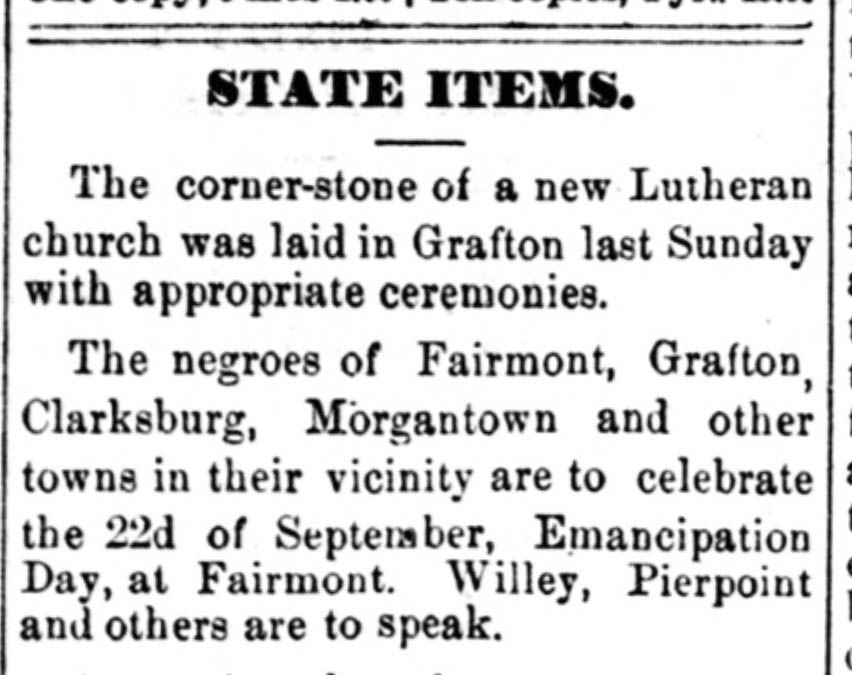“An Extensive Celebration”: Emancipation Day and Juneteenth in West Virginia
Posted by Admin.June 19th, 2021
Blog post by Miriam Cady, PhD, Instruction and Public Services Coordinator, WVRHC
[Language warning: many of the primary source materials used in this post include outdated terminology that readers may find offensive and upsetting.]
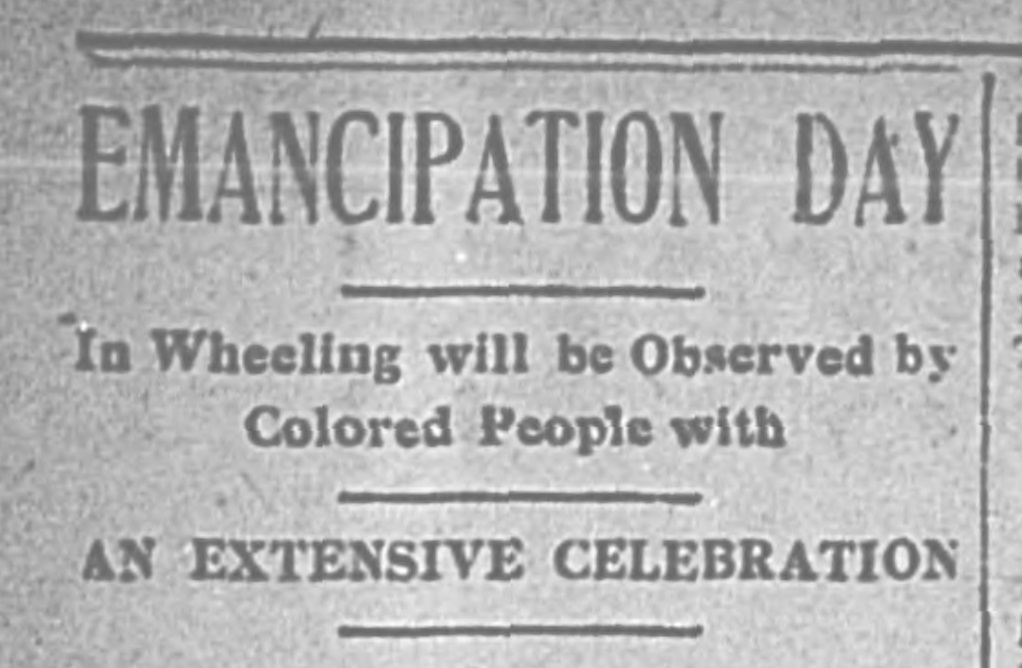
In her 1992 speech on the history of Juneteenth, given at the Washington Carver African American Arts Camp, Historian (and WVU alum) Dr. Ancella Bickley spoke of the impact of the Emancipation Proclamation in West Virginia. The Senatorial debate on the admission of West Virginia into the United States made clear that Statehood would not be granted if West Virginia did not make provisions for limiting or the outright abolition of the enslavement of African Americans in West Virginia. Waitman T. Willey introduced an amendment to the West Virginia Constitution, which was eventually approved by West Virginia voters, Congress, and then President Lincoln. The Willey Amendment established a gradual emancipation of some enslaved people in the soon-to-be state of West Virginia, rather than the complete abolition of slavery. Under the Willey Amendment, only enslaved people under the age of 25 would have been emancipated. This means West Virginians were enslaved until the Emancipation Proclamation and the State’s adoption of the 13th Amendment on the 3rd of February 1865. Dr. Bickley recalls that enslaved people in West Virginia “may not have been told of their freedom and like Mollie Gabe of Braxton County, continued in servitude until her mother sent her uncle to fetch her”. You can read more about Mollie Gabe in Dr. Bickley’s Appalachian History article.

Many states, including West Virginia, celebrate Emancipation Day on the 22nd of September, marking the date of President Lincoln’s preliminary emancipation proclamation in 1862. Some States, as well as the District of Columbia, celebrate on different days. For example, parts of Kentucky celebrate emancipation on the 8th of August, while D.C. celebrates the freedom of enslaved people in the District on the 16th of April.
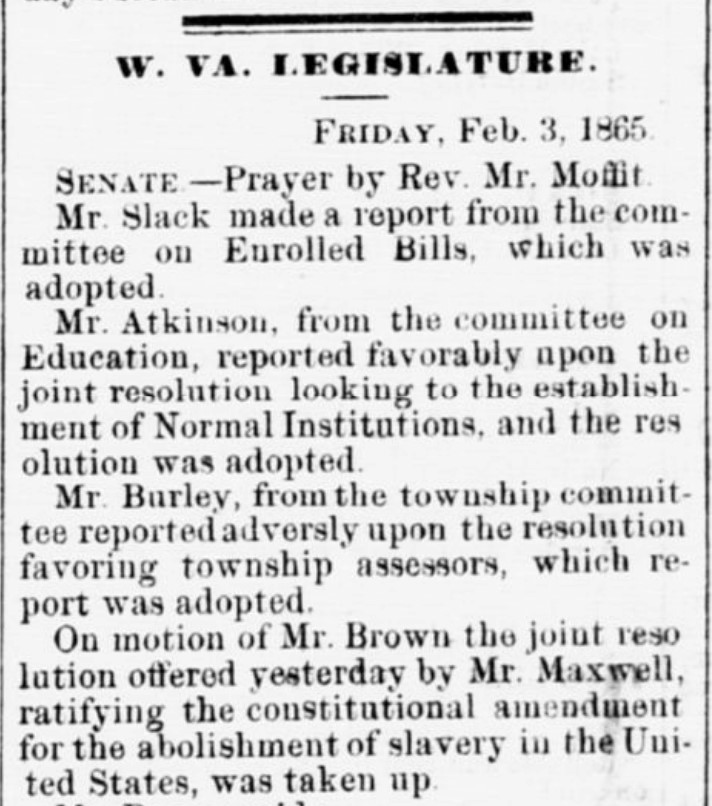
Juneteenth marks the day, June 19th, 1865, that all enslaved people in the United States learned of their freedom. It was on this date in Galveston, Texas, that General Gordon Granger affirmed the freedom of at least 250,000 enslaved African Americans in Texas. Coverage of this event appeared in West Virginia newspapers.
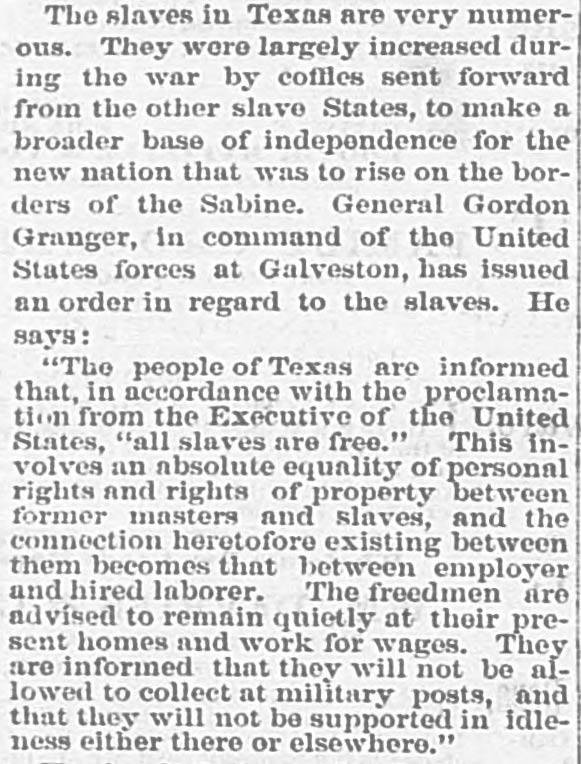
In 2020, Huntington voted to make Juneteenth a city holiday and West Virginia now officially recognizes Juneteenth as a State holiday. Further, the West Virginia Legislature recently passed legislation to declare “February 3 as Freedom Day to memorialize the February 3, 1865 Act by the Legislature that abolished slavery in West Virginia”.
“To come together in a celebration is an act of community” – Ancella Bickley
The celebrations occurring this year are a continuation of years of Emancipation Day celebrations in West Virginia, held as early as 1867. The following newspaper clippings highlight Emancipation Day celebrations held throughout the state in the 19th and 20th centuries.
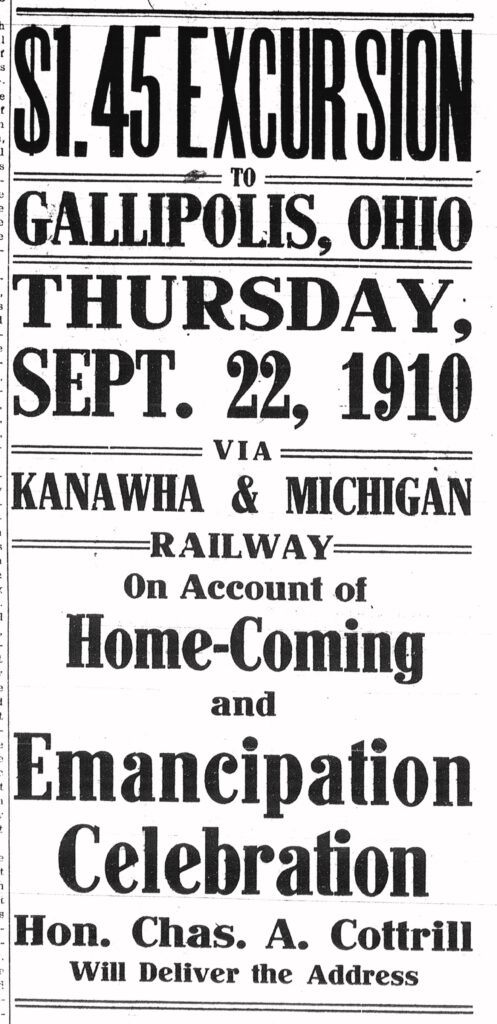

The daily telegram. [volume] (Clarksburg, W. Va.), 16 Sept. 1910. Chronicling America: Historic American Newspapers. Lib. of Congress.
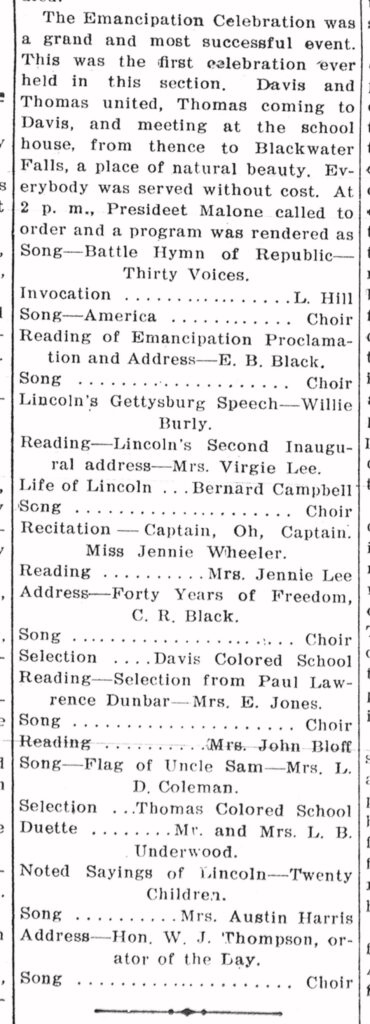
The advocate. [volume] (Charleston, W. Va.), 29 Sept. 1910. Chronicling America: Historic American Newspapers. Lib. of Congress.
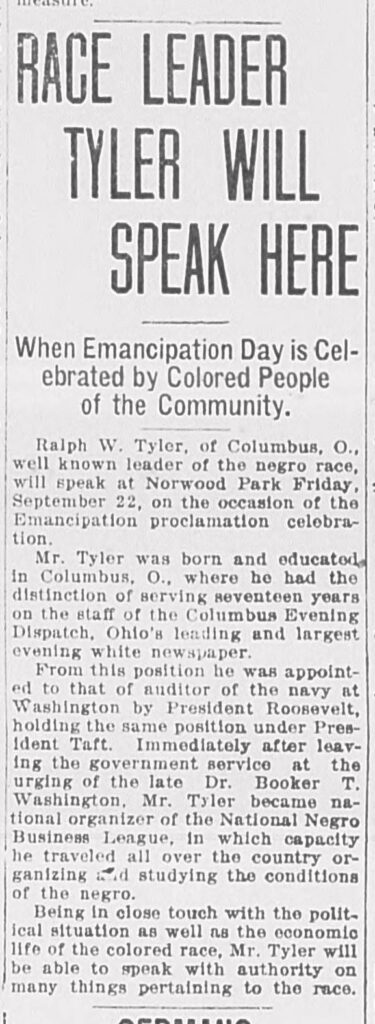
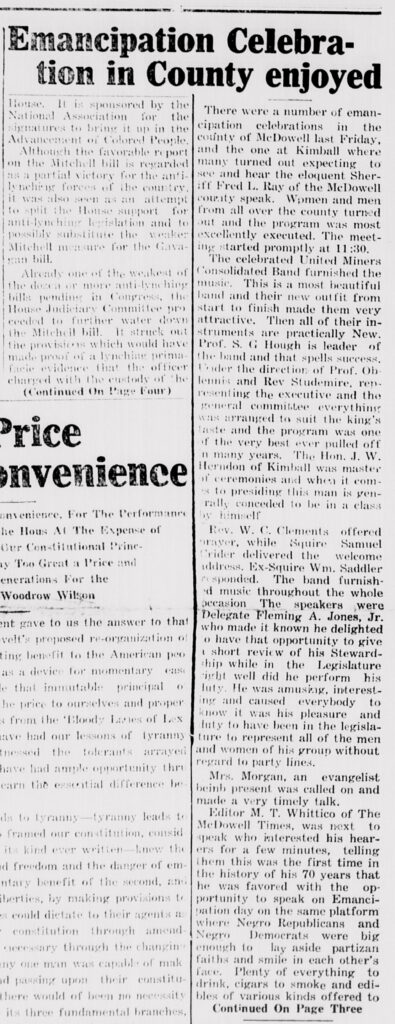
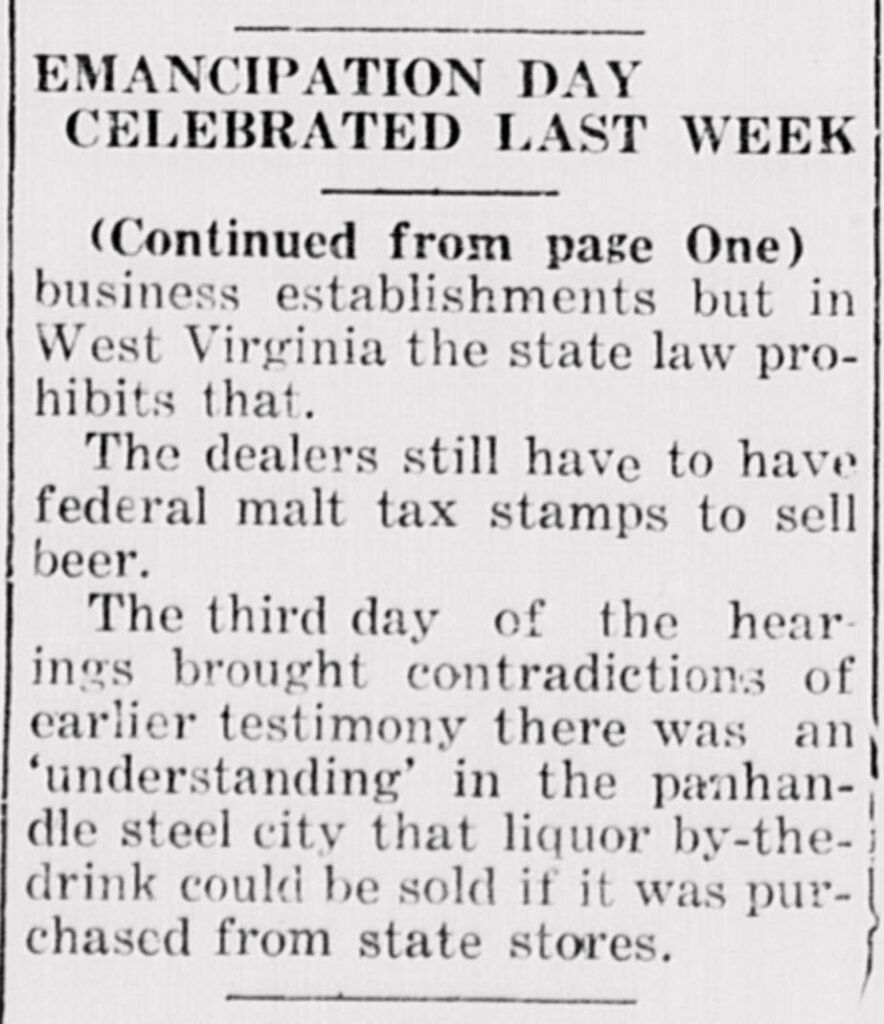
Learn and explore:
From the NMAAHC: The Historical Legacy of Juneteenth
O freedom! : afro-american emancipation celebrations by William H. Wiggins, Jr.
From the Texas State Historical Association: Juneteenth
Early Black Migration and the Post-emancipation Black Community in Cabell County,West Virginia, 1865-1871 by Cicero Fain
Mountaineers Becoming Free: Emancipation and Statehood by Michael E. Woods
From the University of Richmond: Visualizing Emancipation
Genealogy tools and resources from the Afro-American Historical and Genealogical Society
WVU Black and African American Genealogy Guide
Participate:
Transcribe Freedman’s Bureau Records with the Smithsonian






